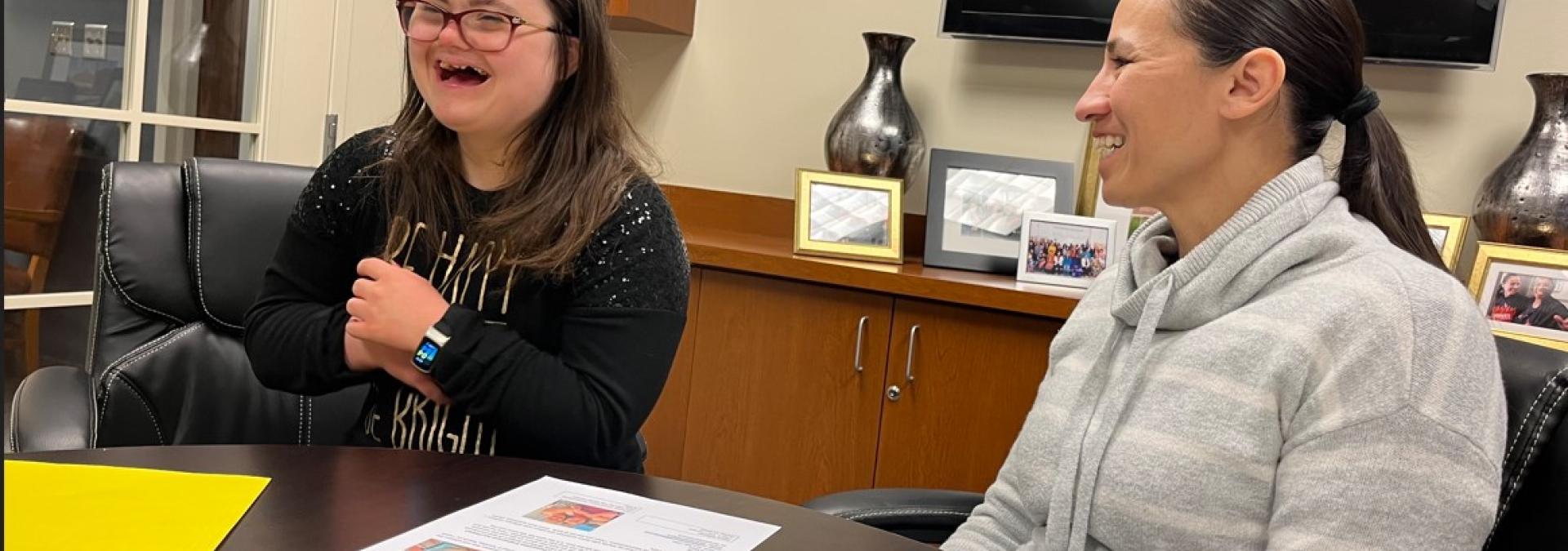Davids Introduces Bipartisan Bill to Expand Savings Options for Workers with Disabilities

Bill gives employers flexibility when recruiting, hiring, and retaining people with disabilities
Today, Representative Sharice Davids, alongside Representative Brian Fitzpatrick (PA-01), introduced the ABLE Employment Flexibility Act, a bill designed to help workers with disabilities build financial security without risking essential federal benefits. ABLE accounts — special savings accounts for people with disabilities — allow individuals to save money without affecting their eligibility for federal assistance programs. This bill would allow employers to make tax-free contributions to these accounts, offering greater flexibility in hiring and retaining employees with disabilities while helping these workers achieve greater financial independence.
“Workers with disabilities should have the same access to employer benefits as anyone else, including the ability to save for their future,” said Davids. “After speaking with Kansans like Rachel Mast, a person with Down syndrome, I introduced this bill to ensure that workers with disabilities can build financial security without sacrificing the federal benefits that help them succeed. It’s a commonsense fix that promotes equity, independence, and economic opportunity for millions of Americans.”
“It makes my heart happy that Rep. Davids is introducing this bill,” said Rachel Mast, Kansan with Down syndrome and disability advocate. “This will help me save more money in my ABLE account for my future, and I won’t lose any of my supports.”
Currently, many employers offer 401(k) matching contributions as a benefit of employment. However, workers with disabilities are often excluded from taking advantage of this option due to strict federal asset limits tied to programs like Supplemental Security Income (SSI). Contributions to retirement accounts can unintentionally disqualify individuals from these benefits, leaving workers with disabilities at a financial disadvantage compared to their peers.
The ABLE Employment Flexibility Act addresses this disparity by allowing employers to make tax-exempt contributions to employees’ ABLE accounts instead of traditional 401(k) accounts. This change ensures workers with disabilities can save for their future without jeopardizing the federal support they rely on to thrive in their communities.
"Individuals with disabilities deserve the freedom to access employee benefits and save for retirement without risking their eligibility for critical federal programs,” said Congressman Brian Fitzpatrick (PA-01). “By eliminating unnecessary barriers, our bipartisan legislation takes a bold step in protecting essential supports like the ABLE program while empowering employees with disabilities to achieve financial security and thrive in the workplace. This is about breaking down barriers and ensuring equal opportunity for all.”
“I’ve been honored to lead the national advocacy movement behind the ABLE Act for almost two decades; it’s incredible to see the bipartisan commitment continue through the introduction of the ABLE Employment Flexibility Act in the U.S. House of Representatives by Congresswoman Davids,” said Sara Hart Weir, Executive Director, Kansas Council on Developmental Disabilities. “At the Kansas Council on Developmental Disabilities, we are proud to not only employ individuals with disabilities in our organization but also support our colleagues in utilizing their ABLE accounts as a workplace inclusion tool - we encourage employers across Kansas and the country to follow our lead."
"NDSC is thrilled about the introduction of this bill. People with Down syndrome and other disabilities who work should be entitled to the same employee retirement benefits as their colleagues without jeopardizing their public supports,” said Jim Hudson, Executive Director, National Down Syndrome Congress (NDSC). “This bill will enable the payment of retirement benefits directly into their ABLE account."
People with disabilities are more than twice as likely to live in poverty as those without disabilities, yet their families often need 28 percent more income to achieve the same standard of living. Strict asset limits for federal assistance programs long prevented people with disabilities from saving for the future. The ABLE program has changed that, helping over 170,000 people with disabilities across the U.S. save an average of $11,186.